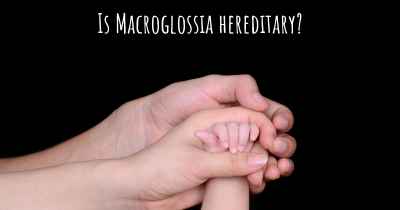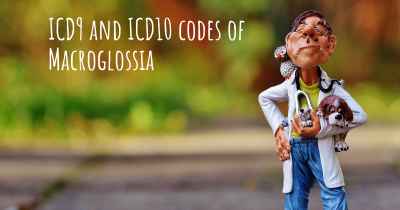Which are the causes of Macroglossia?
See some of the causes of Macroglossia according to people who have experience in Macroglossia

Macroglossia, also known as an enlarged tongue, is a condition characterized by an abnormally large tongue in relation to the size of the mouth. It can be caused by various factors, both congenital (present at birth) and acquired later in life. Macroglossia can lead to difficulties in speaking, swallowing, and breathing, making it important to identify and address the underlying causes.
Congenital Causes:
Beckwith-Wiedemann syndrome (BWS): This genetic disorder is one of the most common causes of macroglossia in newborns. BWS is characterized by overgrowth and affects multiple organs, including the tongue. It may also present with other features such as abdominal wall defects and organ abnormalities.
Down syndrome: Individuals with Down syndrome often have a characteristic facial appearance, which includes a larger tongue. This can contribute to macroglossia and associated speech and swallowing difficulties.
Hemihyperplasia: Also known as hemihypertrophy, this condition involves an asymmetric overgrowth of one side of the body, including the tongue. It is usually present at birth and can be associated with other abnormalities.
Acquired Causes:
Trauma: Injuries to the tongue, such as bites or burns, can cause swelling and temporary enlargement. This type of macroglossia is usually self-limiting and resolves with proper wound healing.
Inflammatory conditions: Certain inflammatory conditions, such as glossitis (inflammation of the tongue) or angioedema (swelling beneath the skin), can lead to tongue enlargement. These conditions may be caused by infections, allergies, or autoimmune disorders.
Tumors: Both benign and malignant tumors can cause macroglossia. For example, oral cancers or benign growths like hemangiomas can lead to tongue enlargement. Timely diagnosis and treatment are crucial in such cases.
Endocrine disorders: Hormonal imbalances, such as hypothyroidism or acromegaly (excess growth hormone), can contribute to macroglossia. These conditions affect the overall growth and development of the body, including the tongue.
It is important to consult a healthcare professional if macroglossia is suspected, as the underlying cause needs to be identified for appropriate management. Treatment options may include speech therapy, surgical intervention, or addressing the specific condition causing the enlarged tongue.








